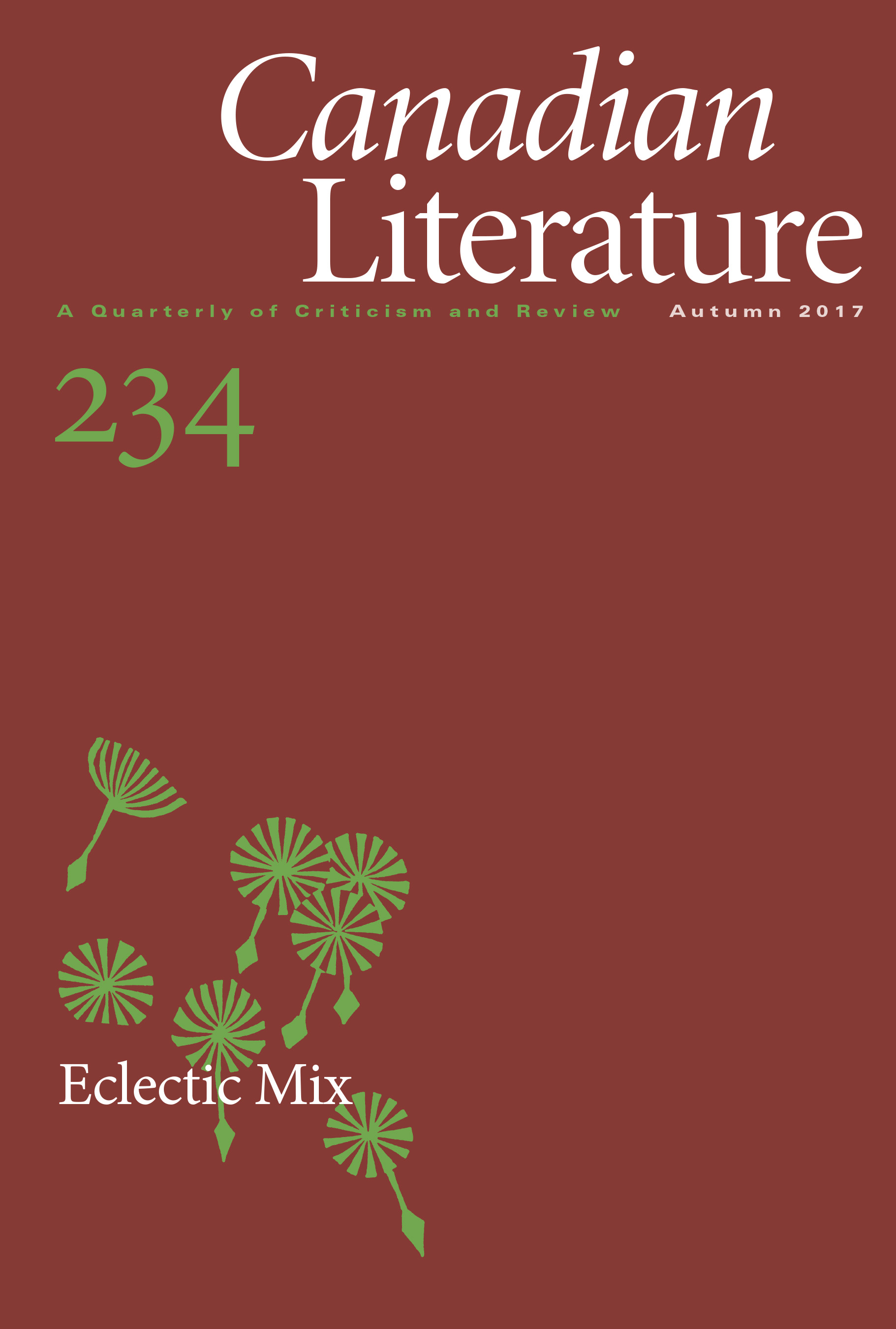“The mountain’s neck moans”: Mourning Places in Robert Bringhurst’s “New World Suite N˚3” and Tim Lilburn’s Assiniboia: Two Choral Performances and a Masque
DOI:
https://doi.org/10.14288/cl.v0i234.189279Abstract
This paper shows that Robert Bringhurst's "New World Suite No3" (2006) and Tim Lilburn's Assiniboia: Two Choral Performances and a Masque (2012) explicitly combine an environmentalist ethics with a critique of settler-colonial exploitation and abuse of indigenous peoples. Bringhurst’s “New World Suite N˚3” and Lilburn’s Assiniboia recollect the inequities and injustices of colonialism, but they also attempt to bring indigenous myth and story into conversation with the inheritors of those justificatory colonial myths. They express a desire for an encounter and communion that might enlarge the world of its readers by calling them to inhabit and be inhabited by the places in which they live. This article will show that these poems initiate a striving toward communion that begins in a personal response of mourning. Both poems suggest that mourning is an ethical response to colonialism in North America and its mistreatment of indigenous people and of the physical environment. Through mourning the dis-remembered history of North America, “New World Suite N˚3” and Assiniboia attempt to create a sepulchre of textual and performative witness—a place of mourning wherein the scattered, destroyed, or forgotten are gathered and made “grievable” (Butler 25). These acts of mourning gesture beyond themselves to a broader work of remembering and inhabiting that the poets argue that residents of North America must undertake and suggest some decolonizing possibilities in contemporary Western Canadian poetics.


